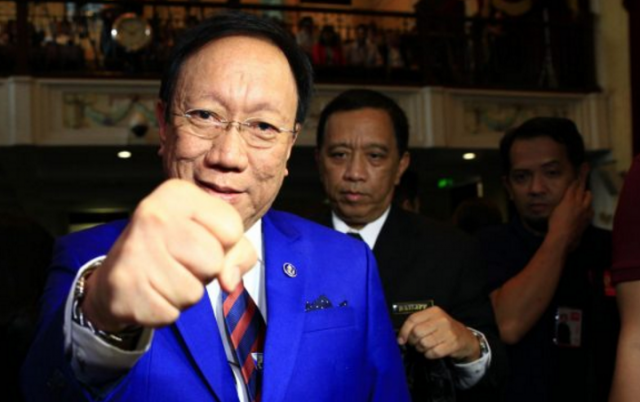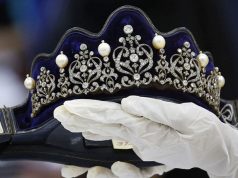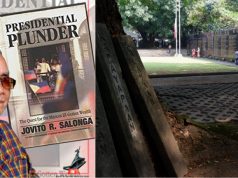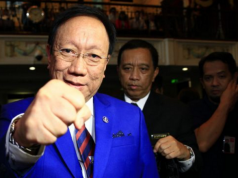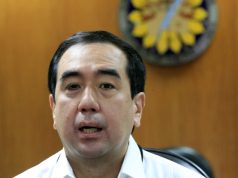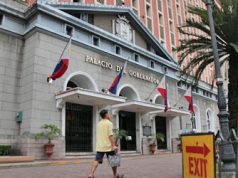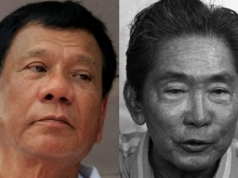The House of Representatives on a landslide vote of 162-10 has passed a bill that will abolish the Presidential Commission on Good Government, or PCGG and transfer its functions to the Office of the Solictor General.
Critics have decried the move, noting that the top state lawyer’s proposed course of action goes against the purpose and mandate of the possibly soon-to-be obsolete agency.
How the PCGG entered the picture again
Barely a week since the polarizing Supreme Court decision that removed Maria Lourdes Sereno from her seat as chief justice, news of the house bill’s approval once again had the country’s political punditry in an uproar.
Several have decried the move, recalling the achievements of the agency.
PCGG is a treasure trove for researchers. For example, the affidavit of a former PNB official (detailing how he would distribute allowances to Mrs Marcos' blue ladies) or the tawdry files on Dovey Beams' alleged relationship with the late Dictator. https://t.co/JcnK69xG3w
— Marco S (not Marcos) (@MALVSIII) May 16, 2018
THE PCGG IS EFFECTIVE
Wooh woot! Over 73 Billion recovered from Marcos piggy booty loot with only combined budget only 506M. Wow PCGG, thank you! ????? https://t.co/mzVedBQ9pU
— Ana (@castillo19939) May 15, 2018
House Bill 7376, authored by House Speaker Pantaleon Alvarez (Davao del Norte), seeks the consolidation of the PCGG’s powers into the solicitor general’s office, strengthening the latter in the process.
Justice Secretary Menardo Guevarra claims that his office opposes the move, but respects the lower house’s decision to submit the bill.
At least four senators have filed corresponding bills in the upper chamber.
Solicitor General Jose Calida since 2017 has lobbied for the folding of the PCGG’s powers into his jurisdiction, claiming “overlapping functions” between the two.
Is Calida the right man for the job?
A point of contention centers on the solicitor general himself, supposedly an ally of the Marcos clan, the same family the PCGG was created to prosecute.
HOR just abolished PCGG and transferred its function of recovering the ill-gotten wealth of the Marcoses to OSG. Current SolGen Calida campaigned for Bongbong Marcos in the last elections. Duterte’s hand in Marcos rehabilitation is undeniable. #MarcosMagnanakaw https://t.co/F2xS9rwMEz
— Cleve Arguelles (@CleveArguelles) May 15, 2018
Calida as state counsel also defended President Rodrigo Duterte’s order allowing the burial of the late Ferdinand Marcos in the Libingan ng Mga Bayani.
In an interview with the media in 2016, he called those who opposed the burial “bitter” on account of their unwillingness to forgive.
“Forgiveness requires courage and those who cannot forgive… that’s why there are bitterness, enmity. He wants to put a closure to all of this,” said Calida while defending the president’s directive.
During the oral arguments on the burial, he pointed to Marcos’ military career as basis for his burial in the heroes’ cemetery.
The allegations against him at the Office of the Ombudsman claim that Calida has “exhibited total bias in favor of the clan of the late dictator Ferdinand Marcos Sr.”
Calida was also the head of the Alyansang Duterte-Bongbong during the 2016 Presidential Elections, a movement that campaigned for a Duterte-BongBong Marcos presidential and vice-presidential tandem. He vowed to be impartial despite his role in the campaign.
Calida in an interview with the media earlier in 2018 claimed he was open to a compromise agreement with the Marcoses, should his office take over the PCGG’s duties.
The Supreme Court had already previously declared a compromise agreement with the Marcoses as null and void in the landmark case of Chavez v. PCGG.
What is the PCGG and why did the country need it?
The PCGG, by law, is a quasi-judicial agency attached to the DOJ, was a new mechanism introduced after the 1986 EDSA revolution.
In her very first executive order as president, Corazon Aquino verbally mandated the PCGG to recover the ill-gotten wealth of the toppled Marcos presidency.
Aquino also ordered the PCGG to investigate reports of any ill-gotten wealth and imbibed it with the power to sequester any such wealth or property.
The late legal luminary and former senator Jovito Salonga was appointed as its first chairperson.
One of the PCGG’s most notable forays into the recovery of Marcos’ alleged ill-gotten wealth is Operation Big Bird, where the PCGG worked with other government operatives to facilitate the retrieval of alleged stolen wealth from the Marcoses’ accounts with foreign banks.

